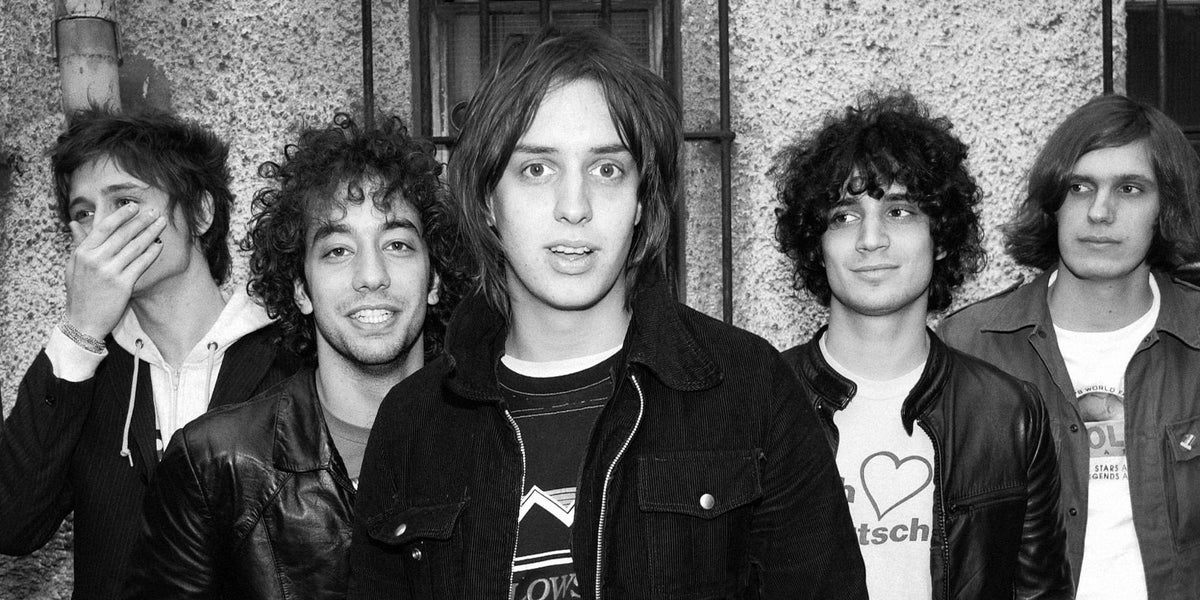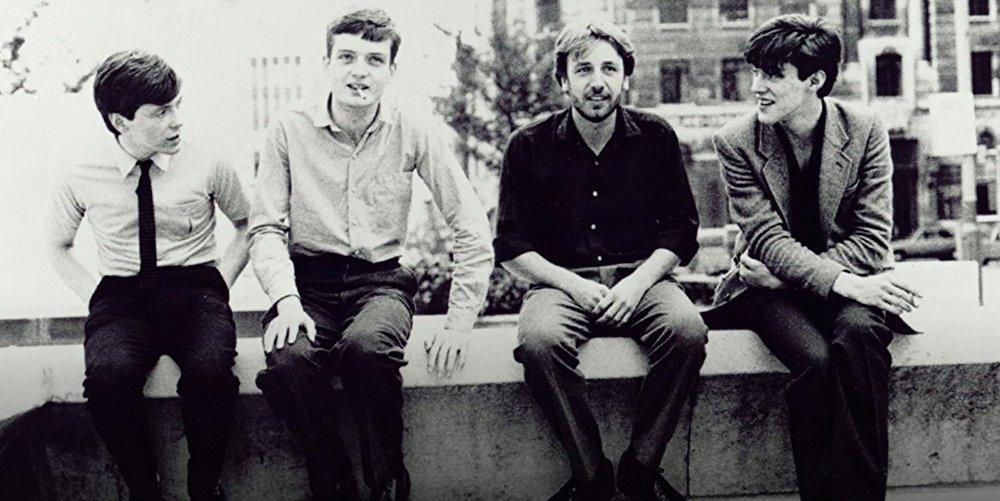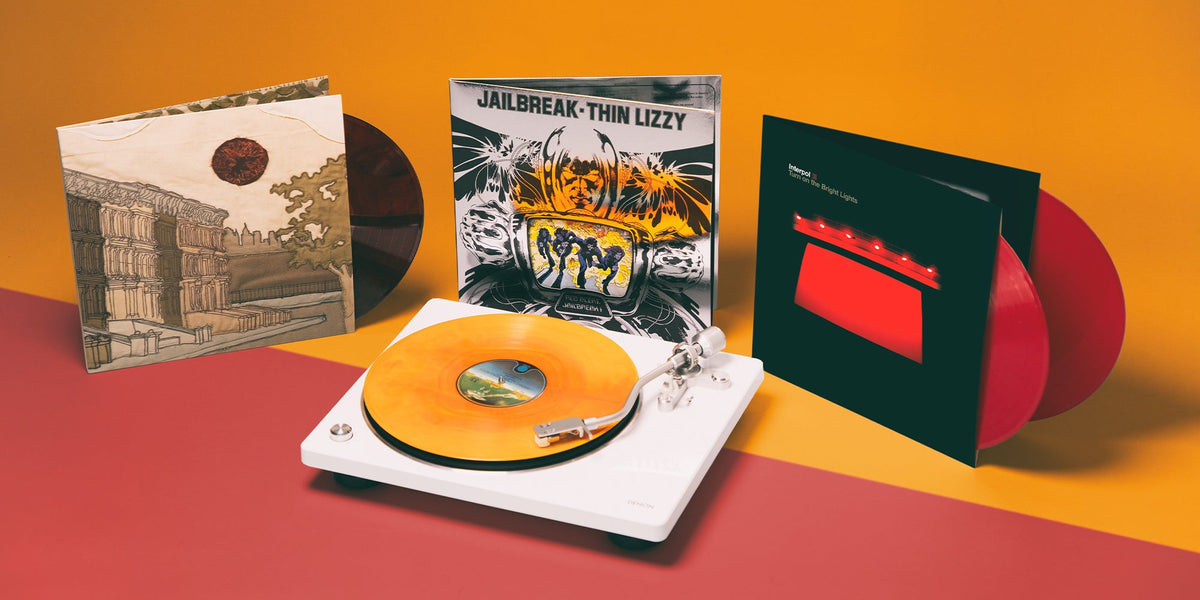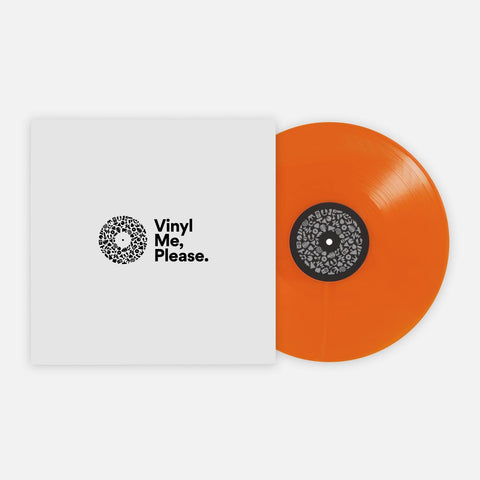Interpol’s Timeless ‘Turn on the Bright Lights’
On the 20th anniversary of the band’s breakout studio debut
It was the month after 9/11 when Interpol left Manhattan to record Turn on the Bright Lights in Connecticut. “To all those who have not been fortunate enough to partake in the bounty that Bridgeport, Connecticut, offers, let me try to put it all in a nutshell: stripmalls and dilapidated houses,” bassist Carlos Dengler quipped when reflecting on the album with Pitchfork 10 years later. It’s a labyrinth of abandoned factories, boarded-up houses and empty storefronts as a result of mismanagement during deindustrialization in the ’70s and ’80s. Despite being the largest city in the state and having plans for restructuring, it never really recovered.
Interpol consisted of Dengler, Paul Banks on vocals and rhythm guitar, Daniel Kessler on lead guitar and backing vocals and Sam Fogarino on drums. They’d met at NYU and were less concerned with musicianship, instead prioritizing “sensibilities about musical tastes and aesthetics,” as Kessler put it. They were conceived in 1998 and put out one self-titled EP before their debut. It consisted of only three tracks: “PDA,” “NYC” and “Specialist,” but each song was quite long, the closer nearing seven minutes. On it, they float with a sense of electric lethargy, reminiscent of the shoegaze instrumentals of Sonic Youth or Drop Nineteens. The rhythm is unhurried, the guitars fuzzy and the vocals detached and lazy.
“I was so urban-centric at that time,” Dengler continued. “I did not want to see a patch of grass. I did not want to look at a tree. I didn’t want to be anywhere near a sparrow, or a squirrel, or a pigeon, because I just wanted to be consumed by the asphalt-jungle aspect of New York.”
In a way, Bridgeport encapsulated the metropolitan mourning that ensued after the Twin Towers fell. The city had caved into poverty with the rise of suburbanization; it already had a shadow of darkness hanging over it, a perpetual kind of grief. Turn on the Bright Lights seems to reside in this gloomy landscape.
The Strokes had just released Is This It, and soon the Yeah Yeah Yeahs would unleash Fever to Tell. While the city was still a fresh wound of tragedy, a new brand of indie rock rose as an oasis, intentionally or unintentionally. This post-punk revival sound, at its core, was sad and wistful; Karen O filled radio waves with the heavy hook, “Wait, they don’t love you like I love you,” and The Strokes’ two hits were “Someday” and “Last Nite,” which both linger on anything but the present. It is bombastic and alive with the texture of New York City, but captures the alienation that comes with living within close proximity of millions of other souls.
Turn on the Bright Lights opens with a delicate, twinkling riff, like dawn is breaking and light is slowly sweeping over the Manhattan skyline. It’s aimless and floating for a few seconds, an uncontained energy that continues to grow. In another bright motion, the drums enter, offering the song a rhythm and a direction. “Surprise, sometimes, will come around,” Banks finally utters after about a minute and 20 seconds of meandering. He says it twice, carelessly and softly. He continues, “I will surprise you sometime, I’ll come around / Oh, I will surprise you sometime, I’ll come around / When you’re down,” as if to clarify what he’d previously said, though still cryptic. The music sinks back into a soaring instrumental, and the guitars continue long after the drums stop. It is like being consumed by the asphalt-jungle aspect of New York when no one else is around, like walking the street when everyone is about to wake up for work, the pavement and the sky blending into one another.
“I didn’t even look at the voice as an instrument back then. I was just the guy with the words and that was it,” Banks has said since. This shouldn’t be a regret, though; his detached drawls serve as the centerpiece of these songs. They opened the band up to a world of comparisons to Joy Division, and fairly so. His baritone is haunted like Ian Curtis’, often distant and speaking rather than singing. He’s casual and bored, like he’s told this story a million times.
It also strangely imbues the album with a built-in nostalgia. It sounds as if he’s talking retrospectively of moments he’s still in; there’s a shadow of darkness hanging over it, a perpetual kind of grief. On the opening of the band’s addictive hit, “Obstacle 1,” Banks murmurs:
I wish I could eat the salt off of your lost faded lips
We can cap the old times, make playing only logical harm
We can cap the old lines, make playing that nothing else will change
It is steeped in a desire to pretend for the sake of the past. He is rationalizing something he knows will lead to inevitable doom; he is asking for his lover’s hand in mutual self-destruction. On the chorus, he belts: “But it’s different now that I’m poor and aging / I’ll never see this face again / You go stabbing yourself in the neck.” It’s rumored to be a reference to a suicide that occurred a few months before they went into the studio; a 21-year-old model was found in a pool of blood next to a kitchen knife.
The lyrics were often full of these hidden meanings, though a lot of the words border on nonsensical. Pitchfork recently rescored a handful of albums, including this one, lowering it from a 9.5 to a 7.0. “‘Sleep tight, grim rite / We have 200 couches where you can sleep tonight’ from ‘PDA,’ was one of the dumbest lines I’d ever heard,” they reasoned. But these eccentric phrases, like Banks’ unconventional vocals, are what separated this album from many others.
The band did not bother to make themselves more digestible nor easier to understand. When Banks laments on “NYC,” “I’m sick of spending these lonely nights / Training myself not to care,” his sincerity is undeniable because these moments of clarity are so rare. Underneath his vulnerable voice, guitars mimic the clattering of a train on its tracks.
When asked what that line about 200 couches in “PDA” meant, Banks answered, “I don’t know, man. I guess, some sort of vision of a big Brooklyn warehouse rave scene, maybe.” Turn on the Bright Lights is not focused on sending a specific message or communicating a certain idea; it wants to convey something inexplicable — a feeling or a mood that’s just there, like an apparition. Through idiosyncratic images, such as 200 couches or a butcher with 16 knives (on “Roland”), and layered, misty instrumentals, Interpol inched closer to a revelation, one that had to unfurl on its own. “Although it’s no Closer or OK Computer, it’s not unthinkable that this band might aspire to such heights,” Pitchfork wrote at the time of its release.
There’s a video of the band playing “Stella was a diver and she was always down” at the Rocket Bar in St. Louis the month after Turn on the Bright Lights came out. It’s a tiny space, and the recording is fittingly in black and white, which seem to be the only colors the guys are wearing. Banks is in a sweater vest over a collared shirt with a tie. He looks like a prep school kid. It’s startling to hear lyrics leave his mouth; it doesn’t look like his voice belongs to him. It’s too haunted and mature. His hair spills over his forehead in front of his eyes, which he squints as he performs, almost closing them completely. He, Dengler and Kessler make something along the lines of a triangular formation, as if they’re in place for a religious ritual. During the second half of the chorus when their chords align, their strumming becomes synchronized, their wrists swinging hypnotically in unison. “She broke away, broke away,” he repeats so often that the words lose meaning and become a shape reverberating around the room, an incantation summoning a ghost. No one in the crowd seems to notice that what they’re watching is monumental.
The music, like most post-punk that leans toward shoegaze, lingers in a space where it’s not fast enough to dance to, but it’s still invigorating and invokes a desire to move. There’s not much to do but sway and bop your head vehemently. “Roland,” the most upbeat track on the record, devotes the introduction to building up the momentum with elastic riffs that catapult satisfyingly into the first verse. The song isn’t that fast, technically speaking, but the instruments continuously meld together into an accelerating whirlwind whose power is indisputable, somehow endlessly accumulating motion. There’s also an element of full-body urgency on “Obstacle 2,” which launches into Banks’ vocals as if they’re a monolog:
I’m gonna pull you in close, gonna wrap you up tight
Gonna play with the braids that you came here with tonight
I’m gonna hold your face and toast the snow that fell
Because friends don’t waste wine when there’s words to sell
It’s an unstable love song, trembling with lust. In the chorus, his vocals overlap as multiple parts swirl together at once, a hallucinogenic harmony of disjointed words about drinking and love, until finally it’s just his voice warbling in a cathartic, distorted yell: “In my mind / This is my, my, my free time.” He is breathless, gasping for air like he’s recovering from a frenzied fit. This all culminates at the very end of the song, when he repeats, “It took time, then I found you,” another incantation, then he gives in to a powerful howl.
The album manages to encapsulate this weird, supernatural aura of a city in the midst of tragedy. Everything continues to move fast around you, but it appears as if it’s in slow motion, a delirious kind of drifting. It inhabits the half-consciousness of existing in this environment and trying to keep up. It portrays the endless longing, in love and for change, and the inevitable insatiability. It is the musical embodiment of the shadow of darkness hanging over all of our lives, and the perpetual kind of grief of living. While the world outside us constantly falls apart, we are walking along the paths of our internal wreckages, trudging through alienation or heartbreak, on an aimless journey.
It is, like Closer and OK Computer, timeless. As years pass, it seems that many fans enjoy it more. It’s hailed as a classic, and its influence can be found everywhere. It became almost an epidemic; a Pitchfork review of the 2006 self-titled by She Wants Revenge complains: “It seems every week someone’s crying wolf over a new Joy Division-via-Interpol soundalike that’s really only a half-hatched post-punk band with a stuffy nosed singer.” Everyone wanted to emulate the eerie ambiance of Turn on the Bright Lights, but they were all trying too hard. They mistook Banks’ detached vocals as apathy, misunderstanding the sea of emotion lying beneath it, and the way he conveys the complex passivity in his own life that he reckons with throughout the album. Also, the band’s chemistry is not replicable. The rhythms, riffs and basslines are masterful in a way that makes the sound seem almost classical; it instantly feels familiar, like returning home after years away. It’s not forced, possibly because they were less concerned with musicianship. They were all moving toward a similar goal, and the talent unspooled along the way. When their ideas clashed and created tension, it was for the better.
Maybe the reason that Turn on the Bright Lights seems to become more relevant as we move further from its release date is that the music itself has always had the texture of nostalgia, and now we can finally actually be nostalgic for it. The sense of mystique that permeates the songs is even stronger with time. While Banks is steeped in a desire to pretend for the sake of the past on “Obstacle 1,” in a way, we are participating in the irresistible act of pretending by listening to it. We’re pretending that we are still in the past, in that moment, inside of the intensity that we’ll never let die. We are living and grieving, pressing play on Turn on the Bright Lights and watching dawn break and marveling at the light slowly sweeping over the Manhattan skyline. A lot has changed since it came out, but the feeling sticks. The aimless journey inside of us persists.
Danielle Chelosky is a New York-based writer with work in Billboard, NPR and Stereogum.
Related Articles
Join the Club!
Join Now, Starting at $36Pages







